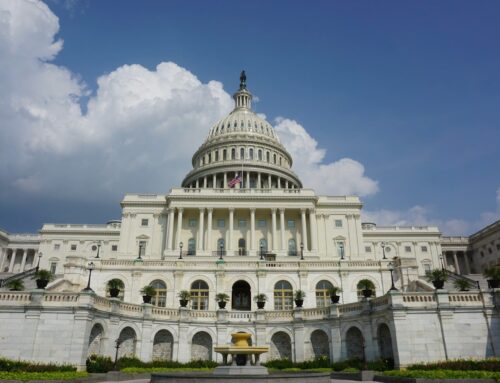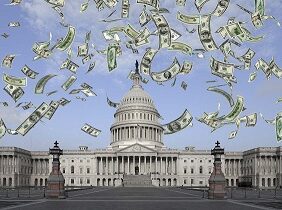Volume XVIII No. 36
Next week, vacation’s over and Congress has to go back to work. Even without the Syria showdown, they’ve got some pressing issues to handle. Zero of the 12 spending bills that fund government have been passed, meaning a shutdown looms at the end of this month. That pesky debt ceiling will be hit by mid-October. And lawmakers are chomping at the bit to do something on tax reform, the farm bill, and immigration. But the emergence of must-pass legislation and potentially broad bipartisan measures also means the resurgence of another perennial legislative annoyance: the temporary tax extender.
Our tax code is a confusing thicket. Since President Reagan and the leaders of the House Ways and Means and Senate Finance Committees last cleared it out wielding chainsaws in 1986, dozens of special interest carve outs and exemptions have sprouted back up. Some of the most obnoxious perennial pests are a litany of “temporary” tax breaks that get extended every couple years. These special interest breaks run the gamut from benefits for NASCAR track owners and oil and gas companies to deductions for rum distillers and corporations that give their old computer equipment to charity. Some of these could be argued as legitimate incursions of the government into the marketplace to encourage certain beneficial behaviors. Even so, they’re seldom actually debated – in public or otherwise. Like ticks on the underbelly of a hound, these “temporary” tax extenders latch onto other more important legislation, like the 2008 bailout, and then again on last year’s extension of the 2001 and 2003 tax cuts.
This is the exact opposite of what Congress should be doing with our tax code. Automatically extending temporary tax breaks, using smoke and mirrors to hide structural fiscal problems (Highway Trust Fund we’re looking at you), and reflexively continuing government agencies that have lived long past their useful life, are what brought us $17 trillion in debt. Instead of passing the buck, it’s time to make some tough decisions.
Thankfully, the leaders of the tax writing committees, Sen. Max Baucus (D-MT) and Rep. Dave Camp (R-MI), are continuing to plow ahead on an effort to restructure the tax code – a last hoorah for the chairmen, Sen. Baucus retires next year and Rep. Camp is term-limited out of his chairmanship. We’re fully in support of their efforts. Unfortunately, what they’re hearing is not too encouraging. People talk about the need to cut waste and make the tax code simpler and easy to navigate, but when push comes to shove, taxpayers are loathe to eliminate their own breaks. Go get someone else’s.
That’s not going to cut it. When you add up the temporary tax extenders and the broader universe of tax expenditures, the permanent breaks, deductions, and credits for specific activities like home mortgage interest or charitable giving, these exceptions cost nearly $1.1 trillion every year. In a $3.8 trillion budget, that’s a large chunk of change to be giving up. We need to make sure these tax breaks, temporary or not, are doing what was intended. Too many work at cross purposes. Because of concerns that subsidizing parking discouraged use of mass transit, Congress decided to subsidize both. Some just aren’t achieving their intended purpose. We give tax breaks for renewable energies to help them compete with fossil fuels, which also get special tax breaks.
We can’t keep doing the same thing and expect a new result. To get a handle on our debt and make the right investments, Congress needs to start making decisions. Overhauling the tax code is a great place to start. And the very first step is to make these temporary tax extensions finally live up to their name by ending them.










Get Social